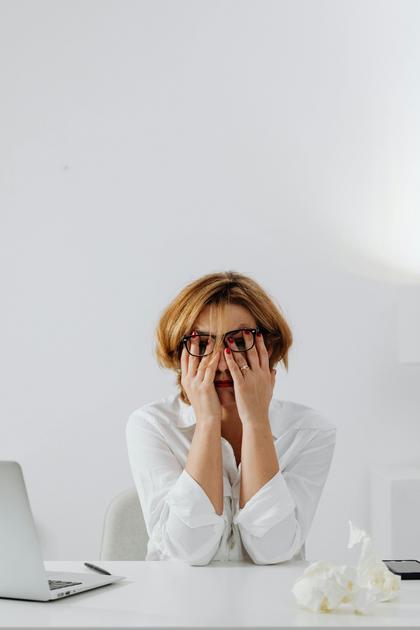Anxiety and Menopause Symptom Relief: Natural Remedies for Women
As women journey through life, anxiety and menopause can often intertwine, creating a complex web of challenges. Many women in their 30s and beyond find themselves facing feelings of fatigue, insomnia, and hormonal imbalances. It’s normal to feel overwhelmed by these struggle, but you’re not alone. This article will guide you through natural remedies that can ease these symptoms and help regain a sense of balance.
Understanding the Connection Between Anxiety and Menopause
As women transition into menopause, various physical and emotional changes occur. Anxiety is a common experience during this time. Hormonal fluctuations can increase feelings of anxiety, making it challenging to cope with daily life. Understanding this connection can help women to manage their symptoms more effectively and seek appropriate relief.
Recognizing the Symptoms Women Face During Menopause
Among the myriad of symptoms that can arise during menopause, anxiety often stands out. Here are some common signs:
- Increased Worry: Constantly feeling on edge or excessively worried about various aspects of life.
- Sleep Disturbances: Trouble falling asleep or staying asleep, which can exacerbate anxiety.
- Physical Symptoms: Palpitations, sweating, and gastrointestinal issues can accompany anxious feelings.
- Mood Swings: Rapid emotional changes can lead to irritability and feelings of sadness.
- Concentration Problems: Difficulty focusing can heighten the sense of anxiety and frustration.
Natural Remedies to Combat Anxiety and Hormonal Imbalance
Women seeking natural remedies for anxiety during menopause can explore various options that may provide relief without the side effects of medication. Here are a few to consider:
- Aromatherapy: Essential oils like lavender and chamomile can promote relaxation. Diffusing these oils in your home or using them in a bath can create a soothing environment.
- Yoga: Regular practice can help reduce anxiety and stress. The combination of physical postures, breathing exercises, and meditation promotes overall well-being.
- Acupuncture: Some studies suggest that acupuncture may help alleviate anxiety symptoms by balancing the body’s energy and enhancing relaxation.
- Mind-Body Techniques: Practices like tai chi can help ground you, making you feel more connected and less anxious.
Breathing Techniques for Anxiety Relief
Simple breathing techniques can be effective in managing anxiety. Here are two techniques to try:
- Diaphragmatic Breathing: Place one hand on your chest and the other on your abdomen. Inhale deeply through your nose, ensuring your diaphragm expands rather than your chest. Exhale slowly and feel the tension release.
- 4-7-8 Breathing: Inhale for 4 seconds, hold your breath for 7 seconds, and then exhale for 8 seconds. Repeat this cycle to help calm your nervous system.
Herbal Supplements That Can Help
Some herbal supplements may help support mental health during menopause. Always consult your healthcare provider before starting any new supplement. Consider these options:
- Black Cohosh: Often used to alleviate hot flashes, some evidence suggests it can also improve mood.
- St. John’s Wort: Known for its antidepressant properties, it may help with mild to moderate anxiety.
- Sage: Traditionally used to improve memory and alleviate anxiety. Sage can be consumed as a tea or in supplement form.
- Valerian Root: A natural sedative, valerian root can help with sleep disturbances and overall relaxation.
The Role of Nutrition in Managing Menopause Symptoms
Nutrition plays a crucial role in hormone balance and mental well-being. Incorporate these foods into your diet:
- Omega-3 Fatty Acids: Found in fish, walnuts, and flaxseeds, they can help manage mood swings and anxiety.
- Complex Carbohydrates: Whole grains like oats and quinoa can stabilize blood sugar levels, preventing dips that may lead to irritability.
- Leafy Greens: Foods rich in magnesium such as spinach and kale may help combat anxiety.
- Fermented Foods: Yogurt, sauerkraut, and kimchi can support gut health, which is often linked to mood regulation.
Mindfulness Practices for Daily Peace
Incorporating mindfulness into your daily routine can significantly reduce anxiety. Here are some practices to consider:
- Meditation: Spend a few minutes each day sitting quietly, focusing on your breath. Apps and guided sessions can be helpful.
- Gratitude Journaling: Write down three things you’re grateful for each day. This practice can shift focus from anxiety to positive aspects of life.
- Nature Walks: Spending time outdoors can ground you and promote a sense of peace.
The Importance of Physical Exercise
Regular physical activity is essential for managing both anxiety and other menopause symptoms. Consider these benefits:
- Endorphin Release: Exercise releases endorphins, helping to improve mood.
- Stress Reduction: Physical activity can lower stress hormones like cortisol, providing relief from anxiety.
- Sleep Improvement: Regular exercise can help regulate sleep patterns, contributing to better mental health.
Building a Support System for Emotional Well-being
Connecting with others can alleviate feelings of loneliness and anxiety. Build and nurture your support system with:
- Friends and Family: Reach out for emotional support; share your feelings and experiences with trusted individuals.
- Support Groups: Joining a group of women experiencing menopause can provide a sense of community and understanding.
- Therapists or Counselors: Professional support can offer strategies and coping mechanisms tailored to your needs.
Empowering Yourself: Steps Towards Relief
Empowerment is possible during this transitional phase. Here are steps you can take to regain control:
- Educate Yourself: Learn more about menopause and its impacts on anxiety. Knowledge can foster empowerment.
- Practice Self-Compassion: Be kind to yourself during this time; it’s okay to seek help and take things one step at a time.
- Set Boundaries: Prioritize your mental health by setting limits on commitments that increase your anxiety.
- Find Joyful Activities: Engage in hobbies that bring you joy and relaxation, whether it’s painting, gardening, or reading.













